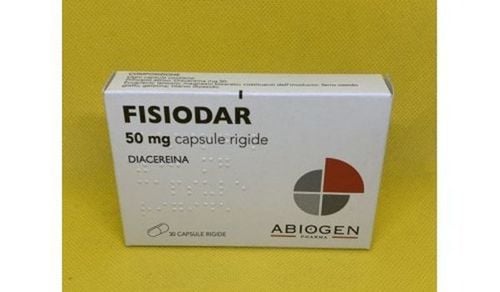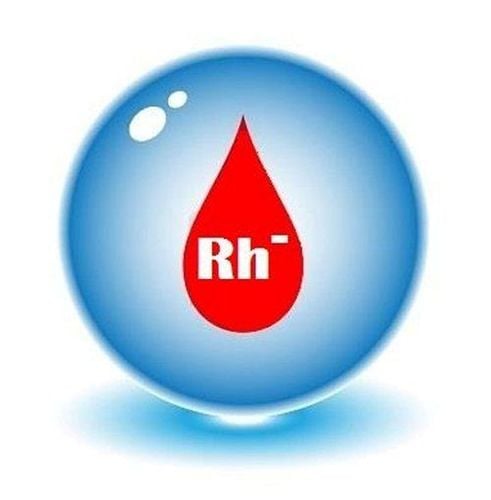This is an automatically translated article.
The article was professionally consulted by Specialist Doctor I Pham Thi Yen - Obstetrician - Obstetrics and Gynecology - Vinmec Hai Phong International General Hospital.Maternal blood group incompatibility is a phenomenon in which the fetal blood is incompatible with the mother's blood group, causing hemolytic anemia and jaundice in the newborn. There are two common types of blood group incompatibility: ABO blood group incompatibility and Rh blood group incompatibility.
1. What is mother-child blood group incompatibility?
Humans have many blood systems, but the most important are the ABO and Rh systems. The ABO system is regulated by the A, B antigens on the surface of the red blood cells, while the Rh blood group system is regulated by the D, C, c, E, and e antigens. Maternal blood group incompatibility is a phenomenon in which the fetal blood group is incompatible with the mother's blood type. During pregnancy, for some reason, the fetal blood enters the mother's blood, starting the process of creating antibodies, antibodies from the mother's blood cross the placental barrier, causing hemolytic anemia and jaundice. in infants.ABO blood group incompatibility: Common in mothers with blood group O and children with group A or B. Because in mothers with blood group O, the 7S-IgG co-antibody predominates, able to cross the placenta . Meanwhile, the 19S-IgM co-antibody of mothers with blood type A or B due to its large size cannot cross the placenta. Rh blood group incompatibility: occurs when Rh (-) mother and Rh (+) child. Rh incompatibility, although rare, causes severe hemolytic anemia in neonates.
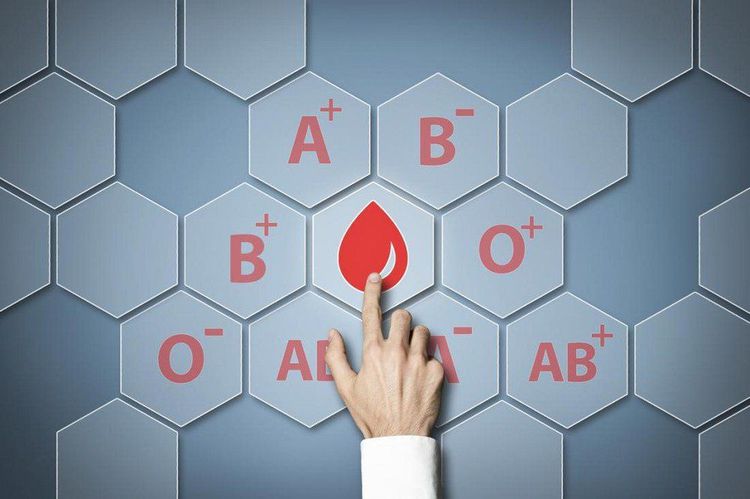
2. What causes mother-child blood group incompatibility?
Babies are born with anemia and jaundice, low iron stores in the blood, and high levels of bilirubin in the blood. Hemolytic anemia due to ABO blood group incompatibility can occur from the first child with bright jaundice, appearing about 2-3 days after birth, clear urine, yellow stools. If detected and treated early, the amount of bilirubin in the blood will quickly decrease, indirect bilirubin will change to direct form, excreted without any consequences. However, if not detected and treated (after 5 days), the increased amount of indirect bilirubin will cross the blood-brain barrier and cause brain toxicity, and the child will have neurological and neurological abnormalities such as extensor torsion. , increased muscle tone. Treatment at this time often does not bring good results, the child is at risk of death or lifelong neurological sequelae.Hemolytic anemia due to Rh factor incompatibility between mother and child can occur from the first child if the mother's antibody level is high, but often occurs in later pregnancies with increasing severity . Indirect bilirubin in the child's body is often very high, easily causing neurological sequelae. In severe form, children have strong hemolysis from the time they were in the womb, when born, the baby's skin is dark yellow for anemia, generalized edema, heart failure, hepatosplenomegaly, children often die soon after birth.
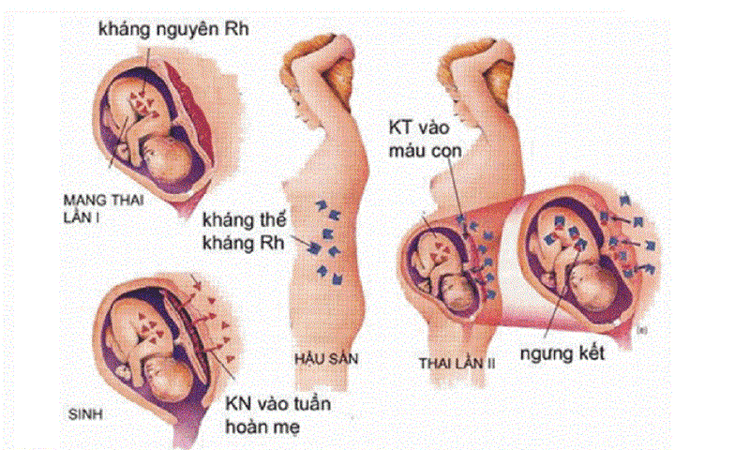
3. Treatment of hemolytic anemia in children due to blood group incompatibility
Early detection and treatment are very important. The specific treatment methods are phototherapy and blood exchange. Supportive treatments are to maintain adequate fluid and energy levels and to treat risk factors that may aggravate jaundice such as infection, use of hemolytic agents, asphyxia,...3.1 . Phototherapy is an effective, low-cost treatment, indicated for all jaundiced children with increased indirect bilirubin above 13mg%. Can use white light or blue light, wavelength 420-480 nm, evenly distributed 55-6 Uw/cm2/nm, away from children 50cm. Light energy will help convert bilirubin directly into non-toxic isomers or indirectly can be eliminated. When illuminating the light, place the baby in an incubator, unclothed, cover the eyes and genitals, and let the light shine directly on the baby's skin. Approximately every 3 hours for the child to change positions, continue exposure until the indirect bilirubin level drops to normal.
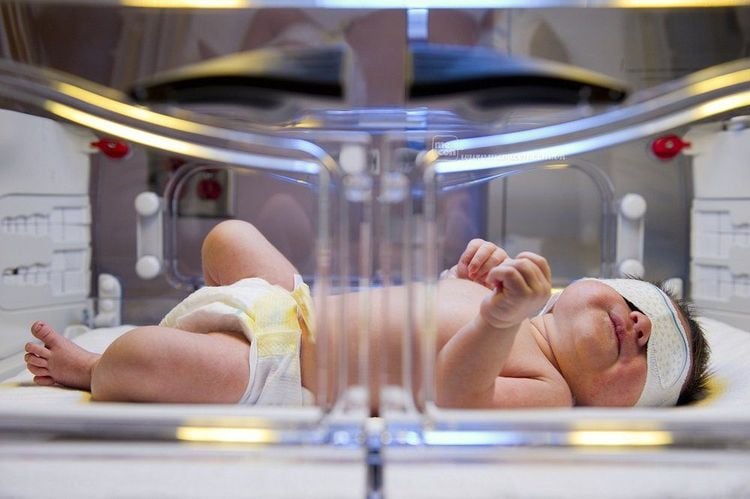
Selection of blood group depends on the blood type of mother and child, the amount of blood changed from 160-200 ml/kg, which is twice the amount of blood of the child. Must ensure sterility when changing blood, carefully check the blood before changing, soak the blood bag warm, inject sedative if the child is excited. During blood exchange, closely monitor body temperature, ensure breathing and circulation, prevent possible complications such as shock, circulatory disorders, hypothermia, embolism due to gas, infection, etc. ..
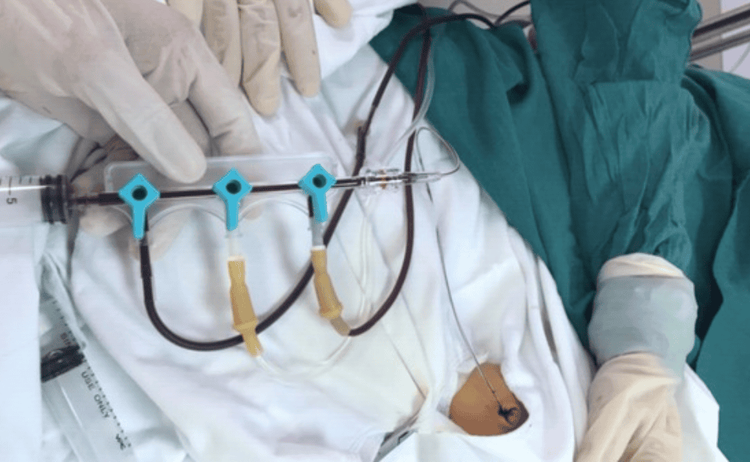
4. What to do to prevent complications caused by blood group incompatibility between mother and child?
Pre-pregnancy examination and screening play a very important role, helping to proactively and early detect risk factors affecting the health of mother and baby.If in the first birth, there is a phenomenon of ABO blood group incompatibility, the mother should give birth for the second time away from the first time to reduce the amount of antibodies in the body, it will be better for the pregnancy.
With Rh blood group incompatibility, after giving birth, Rh negative mothers will be injected with anti-D antibodies within 72 hours after birth. Anti-D antibodies will help prevent the body from producing anti-Rh-positive antibodies that can cause complications in subsequent pregnancies. During pregnancy, Rh-negative women also have to have regular blood tests to determine the level of anti-D antibodies in their body.
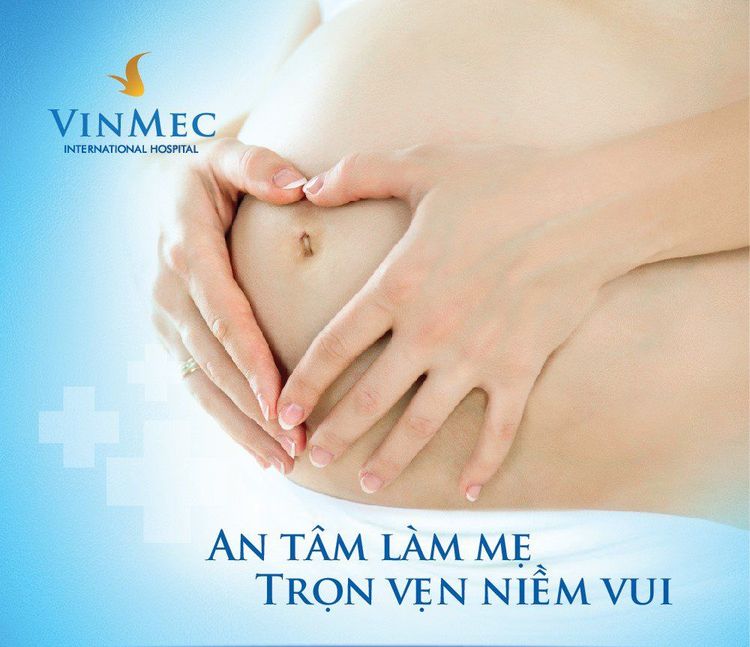
The pregnancy process is monitored by a team of qualified doctors Regular check-up, early detection of abnormalities Maternity package helps to facilitate the process. Birth process Newborns receive comprehensive care Dr. Pham Thi Yen has 11 years of experience in examination and treatment in the field of Obstetrics and Gynecology. Doctor with strengths and deep understanding in:
Examination and consultation of normal pregnancies, pathological pregnancies, high-risk pregnancies Examination and treatment of gynecological diseases: cervicitis, cervical ectropion Surgery Laparoscopic surgery for gynecological diseases: ectopic pregnancy, uterine tumor, ovarian tumor Surgery for breast, vulvar, vaginal, cervical tumors Obstetric surgery: cesarean section, examination and treatment of women's endocrine disorders at all ages: puberty, reproductive age; perimenopausal age.
Please dial HOTLINE for more information or register for an appointment HERE. Download MyVinmec app to make appointments faster and to manage your bookings easily.
Recommended video:
Prenatal diagnosis: What mothers should know







